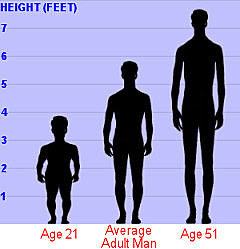 People who pronounce the word "height" as if it rhymed with the word "width" are what I like to call faceburners. You know the type, they're so annoying and or awkward you can't actually look directly at them without squinting.
People who pronounce the word "height" as if it rhymed with the word "width" are what I like to call faceburners. You know the type, they're so annoying and or awkward you can't actually look directly at them without squinting.A woman I used to work with, I think her name was Ellen, made up a word, "fontrom," which suits my reaction to hearing "heidth." Fontrum is the shame-transference phenomenon that occurs when you see another person do something so embarrassing that you yourself become embarrassed. I experience fontrum every time I hear someone say "heidth." I think I find it so particularly poignant because it's one of those times when, by trying to sound more intelligent, the speaker betrays his or her native ignorance. Kind of like people who default to "I" over "me"--between you and I--in every situation, thinking that that's how educated people talk.
4 comments:
What's the derivation of the word fontrum? What words did your friend put together to create this word?
Fuck you
So they pronounce it to rhyme with width.... so "hit-th"? You suck more than she does.
"Until the end of the seventeenth century, highth or heighth were its standard spellings. The word was formed in Old English from high, plus -th, the exact analogue of width, breadth, and length. If word history were the only consideration, we all ought still to be using highth.
The reason why we don’t comes down to dialect pronunciation in parts of Northern England in Middle English times, in which the -th ending was pronounced as /t/. In Southern England, it was said instead like the initial th in thumb. During the seventeenth century, the Northern form triumphed over the Southern, and the spelling followed suit. (Width and length didn’t follow because final dt is not a common consonant cluster in English and is hard to say.)
However, heighth continued to be widely heard. Charles Dickens used it frequently — as here in Great Expectations: “Pip, I wish you ever well and ever prospering to a greater and a greater heighth”. It still exists in several English dialects down to the present day. It has also survived in parts of North America, which have tended to cling to older pronunciations.
Because of its odd history, we can hardly argue that highth is truly an error, more an archaism. Though nearly everyone now spells it height, it’s not that uncommon to hear it said as "heighth" among educated people in North America, and some authorities there consider it to be a permissible variant."
Post a Comment